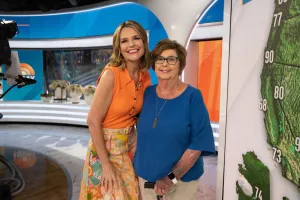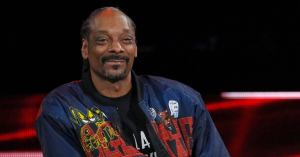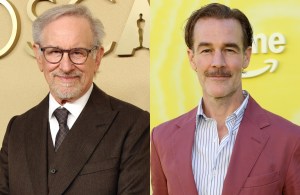A recent documentary about Prince William and Prince Harry and the media that aired on the BBC in late November has fueled nearly 1,000 complains from viewers. The Princes and the Press aired on the broadcaster on Nov. 22 and Nov. 29 and examined the relationship between the between the royal brothers and the media, with the two-part BBC Two documentary spurring a total of 925 complaints to the BBC.
The complaints, according to the BBC and as reported by PA Media, were related to “bias against the royal family,” with both episodes of the documentary spurring controversy. Examining the period after the Queen’s Diamond Jubilee in 2012 and examining the relationship between the Duke of Cambridge and the Duke of Sussex, the first episode received 776 complaints. The second episode, which looked at the last three years, during which Harry and his wife Meghan Markle notably retired as working royals, received a total of 149 complaints. For comparison, 1,428 complaints about Good Morning Britain on ITV were sent to media regulator Ofcom following a discussion on the coronavirus yellow card reporting system, and radio host Steve Allen attracted 840 complaints after describing Strictly Come Dancing contestant Tilly Ramsay as a “chubby little thing.”
Videos by PopCulture.com
Presented by Amol Rajan, The Princes and the Press included a number of bombshell allegations, including allegations that William and his staff briefed the media against Markle and Harry. The documentary, according to The Sun, also claimed leaks to the press about Markle’s behavior towards staff came from other royal households shortly after her marriage to Harry in 2018.
In the days immediately following the premiere of the controversial documentary, the BBC received more than 100 complaints. The BBC acknowledged the complaints in a statement, sharing that the complaints were from “viewers who believe the programme was disrespectful to the Royal Family and therefore should not have been broadcast.” In a statement, the BBC said the documentary “explored the relationship between the media and the monarchy, focusing on the younger royals” and included “explored the relationship between the media and the monarchy, focusing on the younger royals.”
The statement added that the documentary included “a royal statement in both episodes of the programme” and there were “approaches to Buckingham Palace, Kensington Palace and Clarence House for comment or for a representative to be interviewed for this series.” The statement from the royals shown at the end of the episodes said, “a free, responsible and open press is of vital importance to a healthy democracy.” It added, “However, too often it is overblown and unfounded claims from unnamed sources that are presented as facts and it is disappointing when anyone, including the BBC, gives them credibility.”
Most Viewed
-

Beverly Hills, CA – January 31, 2026: Jelly Roll, left, and Bunnie Xo, right, pose for portraits on the red carpet during the 68th GRAMMY Awards Pre-GRAMMY Gala & GRAMMY Salute to Industry Icons Honoring Avery Lipman & Monte Lipman at the Beverly Hilton on Saturday, Jan. 31, 2026 in Beverly Hills, CA. Clive Davis’ annual pre-Grammy party hosts an array of A-listers from entertainment, sports, and politics to come together and enjoy performances. (Kayla Bartkowski/ Los Angeles Times)







